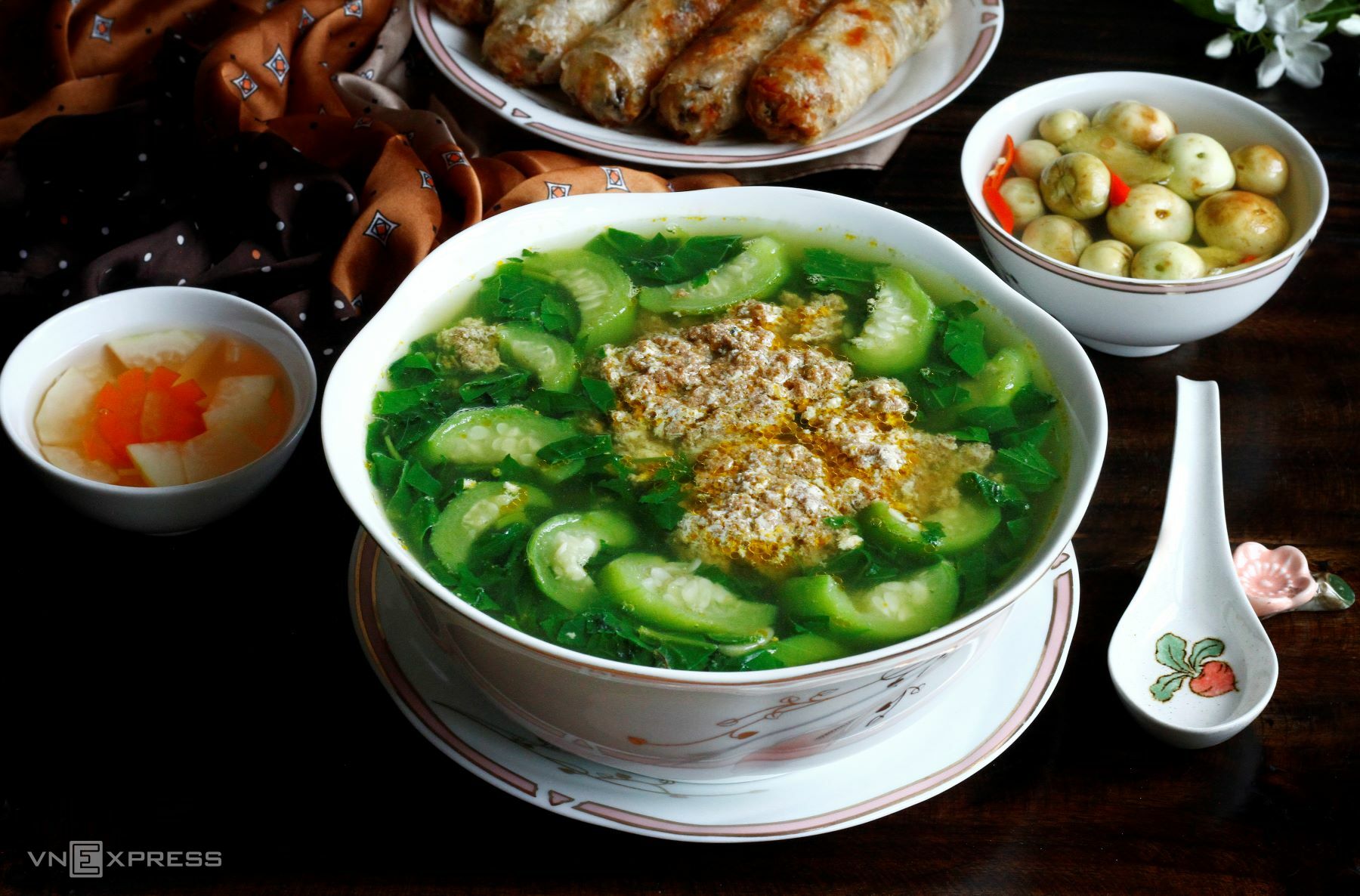Vietnamese crab soup is a nutritious dish. Crab meat is rich in easily absorbed calcium and protein, along with B vitamins, and minerals like iron and zinc. Jute leaves and spinach are rich in soluble fiber, vitamins A and C, and antioxidants. This combination makes crab soup a refreshing and nutritious meal, beneficial for health.
However, the digestive system slows down in the evening. The protein in crab requires strong digestive enzymes to break down. Eating it late can overwork the stomach, potentially causing difficulty sleeping, belching, and bloating. The mucilage in spinach and jute leaves can also cause an upset stomach if eaten close to bedtime. This is why many people experience stomach discomfort when eating crab soup in the evening.
Additionally, crabs live in natural environments and may carry bacteria or parasites. If not cooked thoroughly, the risk of intestinal infection increases, further exacerbating discomfort and affecting sleep, especially in the evening. Therefore, nutrition experts recommend cooking crab soup thoroughly if consumed at night.
 |
Traditional Vietnamese crab soup. Photo: Bui Thuy |
Traditional Vietnamese crab soup. Photo: Bui Thuy
Traditional Vietnamese cuisine is deeply influenced by the philosophy of Yin and Yang and the Five Elements. According to this belief, crab, being seafood, has a cooling effect, helping to clear heat, detoxify, and soothe the body during hot days. Spinach and jute leaves also have a cooling nature, combining with crab to alleviate the feeling of heat, making them suitable for lunchtime when Yang energy is at its peak.
Conversely, evening is the time when Yin prevails, and the body needs gentleness to prepare for sleep. Consuming a cooling dish like crab soup can increase Yin and decrease Yang, leading to a cold stomach and slower circulation. Therefore, for Yin and Yang balance, crab soup is best suited for daytime consumption, while warm and light dishes are preferred in the evening.
In modern life, many busy families lack time to cook at midday, so crab soup is often served in the evening. To adapt to this lifestyle and individual constitutions, adjustments can be made, such as eating before 7 pm to allow sufficient digestion time. Cook the soup in moderate portions, avoiding overeating, especially for those with stomach problems or digestive disorders. Consider using less mucilaginous young spinach and balsam apple in the soup, instead of jute leaves which are high in mucilage.
For young children, the elderly, and those with sensitive stomachs, it's best to limit or avoid crab soup in the evening.
For a balanced meal, Vietnamese people often pair crab soup with pickled mustard greens or fresh pickled eggplant dipped in shrimp paste. The characteristic salty and sour flavors of these accompaniments aid digestion thanks to the beneficial lactic acid bacteria produced during pickling. Furthermore, the sour, salty, and slightly spicy flavors of pickled vegetables and shrimp paste neutralize the cooling effect of the crab soup, warming the stomach.
Bui Thuy












